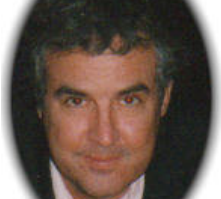“Death of a Legend …” That’s what an obit on the website of the Lighthouse Baptist Church in Alba, Texas, said of someone named Bill Bradford.
I’m from Texas. I’m pretty good at small Texas town names, I never heard of Alba before. Now I know where it is.
This Bill Bradford fellow (or “feller” if you want to be cornpone) was very important to the writer of the obituary.
Why was he important? He was a voice on the radio. Or, rather, he appeared to be “the voice” on the radio.
“Bill Bradford was the Walter Cronkite of Sulphur Springs and the surrounding communities,” the writer tells us.
I do know where Sulphur Springs is. It’s a town of 15,000 in northeast Texas. One of my grandmothers was born not far from Sulphur Springs and therefore nearby Alba, too. She was the daughter of sharecroppers. Things are better now in that part of the state but no one gets rich there (other than a few football-playing escapees).
The Grand Poobahs of radio keep saying that radio’s strength is “local.” That’s how broadcast radio is going to head off the demon Internet and the even more demonic wireless menace.
Well, Bill Bradford and the writer at the Lighthouse Baptist Church in Alba, Texas, are exactly what “local” is all about.
“He became a family member to all who listened to him. He was like a dad, an uncle, and a brother to his listeners. We trusted him.”
The writer says, “Dad wouldn’t cut hay if Bill said there was a chance of rain. My brother and I listened intently because we knew if Bill Bradford said there was a chance of rain that meant we wouldn’t have to go to the hay field that day.”
I have no idea whether the writer had ever met Mr. Bradford but he imparts a great reveration for him:
“My memories of Bill Bradford are most vivid during times of severe weather or other breaking news events. There is no way of knowing the additional number of hours he spent at the radio station to keep us informed on the dangers and damage inflicted. When he would break in on regular programming to give the latest updates on whatever crisis was going on, you could tell by the sound of his voice that it was critical. He had a gift (as the E. F. Hutton commercial would say) … When he spoke, people listened.”
Weather is a big deal in Texas.
Bill Bradford, according to the writer, and I have no reason to doubt him, arrived at KSST, a small AM in Sulphur Springs, in 1948. He had been a pilot and a communications officer in World War II. He started out as an engineer. In the decades that followed he stayed with the station, managed and even owned it.
He didn’t leave for the big city — Dallas is a hundred or so miles to the west. The mighty metropolis of Texarkana is probably 50 or more miles to the east.
Yet as Bill Bradford spent his days in Sulphur Springs his presence became known to the environs outside the Hopkins and Wood counties region. He was elected to the Texas Radio Hall of Fame’s Hall of Honor in 2005.
There are those in radio world who would scoff at a man living his life out at a 1,000 watt station in an unmeasured micromarket. New York, Los Angeles, Chicago, even Dallas, “town to town, up and down the dial,” only the (former) Arbitron markets are important, some would say. Yet it would seem that Bill Bradford, in his small world, will be remembered, and remembered well, by more people than any number of major market DJs that are here today and gone tomorrow.
Being local isn’t glamorous but it might mean something to the handful of listeners. Bill Bradford meant something to his listeners for six decades. How many in radio can say that when they look back at the end of the day?
There’s one more thing about Bill Bradford you should know. According to our Alban Pepys, Bradford had a hand in the creation of the Emergency Broadcast System. He was the author of the immortal words, “This is a test. This is only a test…”
Bill Bradford truly was a legend. Go here (find “Bradford” to simplify things) and here for more information on Bill Bradford.







